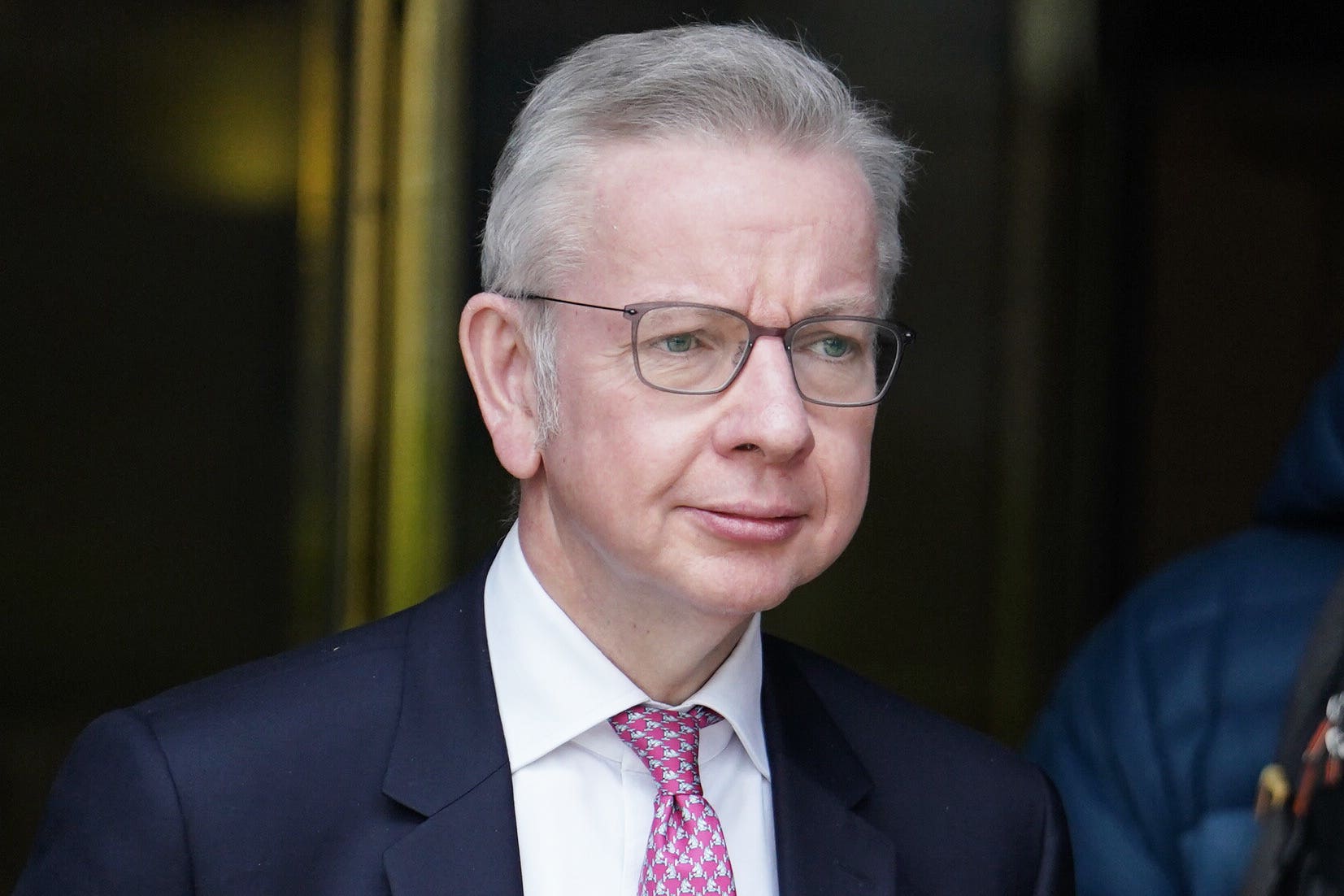Michael Gove admits ‘moral cowardice’ during Brexit campaign
Mr Gove promised Lord Cameron he would not take up a “prominent role” in the Vote Leave campaign

Michael Gove has admitted to “moral cowardice” during the Brexit campaign after not telling then-prime minister David Cameron about his prominent role in the Leave campaign.
The levelling-up secretary said he was persuaded to take up a bigger job by Vote Leave campaign coordinator and former Boris Johnson aide Dominic Cummings.
He made the comments to former chancellor George Osborne on the Political Currency podcast, which is also hosted by former Labour shadow chancellor Ed Balls.
Mr Osborne, a steadfast Remainer, said that Mr Gove had promised Lord Cameron he would not take up a “prominent role” in the campaign, but ended up one of the most visible members of the Vote Leave group.
The former chancellor asked Mr Gove: “Did you deceive David? He certainly felt, at the time, betrayed.”
Mr Gove denied that be betrayed Lord Cameron, but added: “As I mentioned, I do think that I could have been clearer earlier.
“And I think that was an example of, on the one hand, cowardice on my part, moral cowardice, on the other hand, a recognition that perhaps there’s this feeling in politics, perhaps something will turn up, perhaps this moment won’t come when we have to make that decision.
“But I think David, entirely fairly, should have expected me to have been more upfront earlier.”
Mr Gove said he ended up “going further” than he thought in the campaign as he ended up in television debates and political shows as a representative for Vote Leave.
Mr Balls asked the levelling up secretary if Mr Cummings’s influence was one reason he became more involved than he thought he would at the start of the Brexit campaign.
Mr Gove responded: “Yes. And again, one of the arguments was ‘if you don’t do this, they’ll have Farage on’, and then with a sweep of his arm pointing to all the people in the office, including people who had been working with me for years, said: ‘You cannot let these people down’.”
He added that unlike Mr Osborne, who stayed up all night to see the result of the referendum, he only knew Vote Leave had won when his wife woke him up the next morning.
“I didn’t wake anyone up, I just went and lay on the sofa wide awake,” he said. “And not only did I think, as I still do, this is a disaster for my country, I just knew it was an absolute disaster for my career, it was basically the end of my political career. It’s definitely, of my political career – of any part of my career – the most traumatic day of my life.”
Mr Cameron and Mr Gove were formerly close friends but fell out in 2016 over Mr Gove’s active role in leading the Brexit campaign against him.
Subscribe to Independent Premium to bookmark this article
Want to bookmark your favourite articles and stories to read or reference later? Start your Independent Premium subscription today.

Join our commenting forum
Join thought-provoking conversations, follow other Independent readers and see their replies